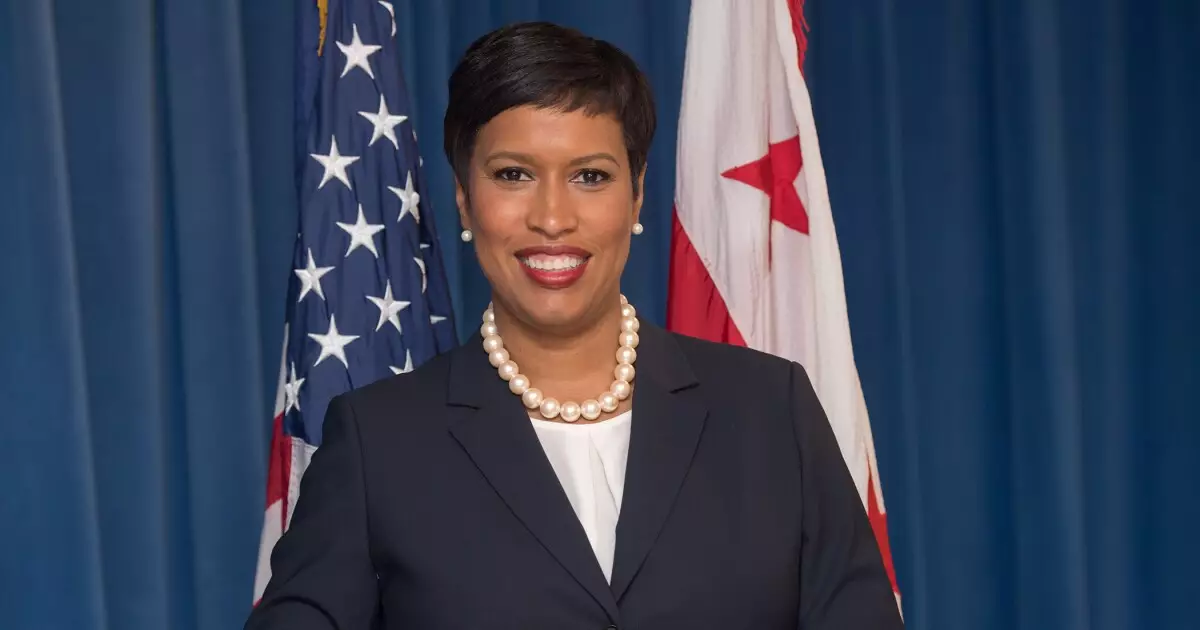As President-elect Donald Trump prepares for his second inauguration, his relationship with Washington, D.C. Mayor Muriel Bowser has entered a new phase. On Monday, the two met to discuss collaborative efforts between local and federal governments, particularly in light of recent Congressional developments that have handed over the RFK stadium site to the city’s control. This meeting signals a budding optimism for a productive partnership amid a shifting political landscape, even as both leaders represent divergent ideological viewpoints.
Bowser’s statement following the meeting highlights their discussion on numerous joint initiatives, emphasizing the importance of stewardship over federal properties, infrastructure, and the utilization of green spaces. This is a crucial moment for Washington D.C., which finds itself at the nexus of political power while grappling with the fallout of past grievances. The transition of the RFK site, a once-vibrant athletic venue now lying dormant with vast parking lots, opens doors for revitalization. City leaders envision transforming this area into a mixed-use development, integrating residential, retail, and entertainment features to attract the NFL’s return to the city, particularly for the Commanders, Washington’s professional football team. Such a project could not only serve the local economy but also revive a sense of community pride.
In anticipation of the inauguration, Washington, D.C. is also taking significant fiscal steps. The city received a substantial $90 million budget appropriation, part of a larger continuing resolution passed just before the Christmas break, aimed at mitigating the financial implications of the transition. This funding indicates both the federal government’s awareness of the city’s additional burdens during presidential transitions and its willingness to support local governance. Moreover, with D.C. maintaining a triple-A bond rating, financial prudence remains paramount. Challenges like government shutdowns and contentious budgetary negotiations could jeopardize this standing, making the need for collaboration between local and federal officials even more pressing.
Historically, the relationship between Trump and Bowser has been fraught with tension. During Trump’s first term, disagreements erupted over controversial matters, including a proposed military parade that the city believed would cost taxpayers an exorbitant sum. The handling of protests surrounding the Black Lives Matter movement further deepened the rift, with Trump publicly deriding the city’s management. His remarks on the campaign trail, depicting D.C. as “dangerous” and “badly managed,” did little to foster goodwill between the administration and city officials.
However, the current tone reflected in their latest meeting suggests a strategic shift. Both leaders seem eager to leave behind past disputes and focus on what could be a mutually beneficial relationship. Bowser expressed hope for finding common ground, seeing potential for cooperative governance during Trump’s second term. This pivot may be motivated by practical concerns; proactive engagement with the federal government could yield significant benefits for Washington, particularly in terms of infrastructure improvements and economic growth.
The dynamics of D.C. governance are unique due to its status as the nation’s capital. The city’s dependence on federal appropriations and the interplay of local and national politics mean that decisions resonate far beyond city limits. As Congress often attaches controversial riders to budget requests, including the recent approval for the RFK site, the local government must navigate these waters with care. Bowser and her team have urged Congress to consider how budgetary negotiations—especially those with ideological strings attached—affect the city’s credit rating and overall efficacy.
As Washington looks to the future, collaboration with Trump’s administration could be pivotal for addressing pressing urban issues. Lessons from the past suggest that a unified approach can yield productivity, steering both city and federal leadership towards strategic improvements in public services and infrastructure—a win-win for residents and the political landscape alike.
With the nation still divided along political lines, the partnership between Trump and Bowser epitomizes a broader narrative about the necessity of collaboration in governance. It reflects the reality that despite differences, effective leadership requires dialogue and compromise. As preparations for the January 20 inauguration unfold, the capital’s inhabitants and stakeholders watch closely, hopeful that this newly amicable relationship can usher in a new era of cooperation, revitalization, and civic pride for Washington, D.C.

